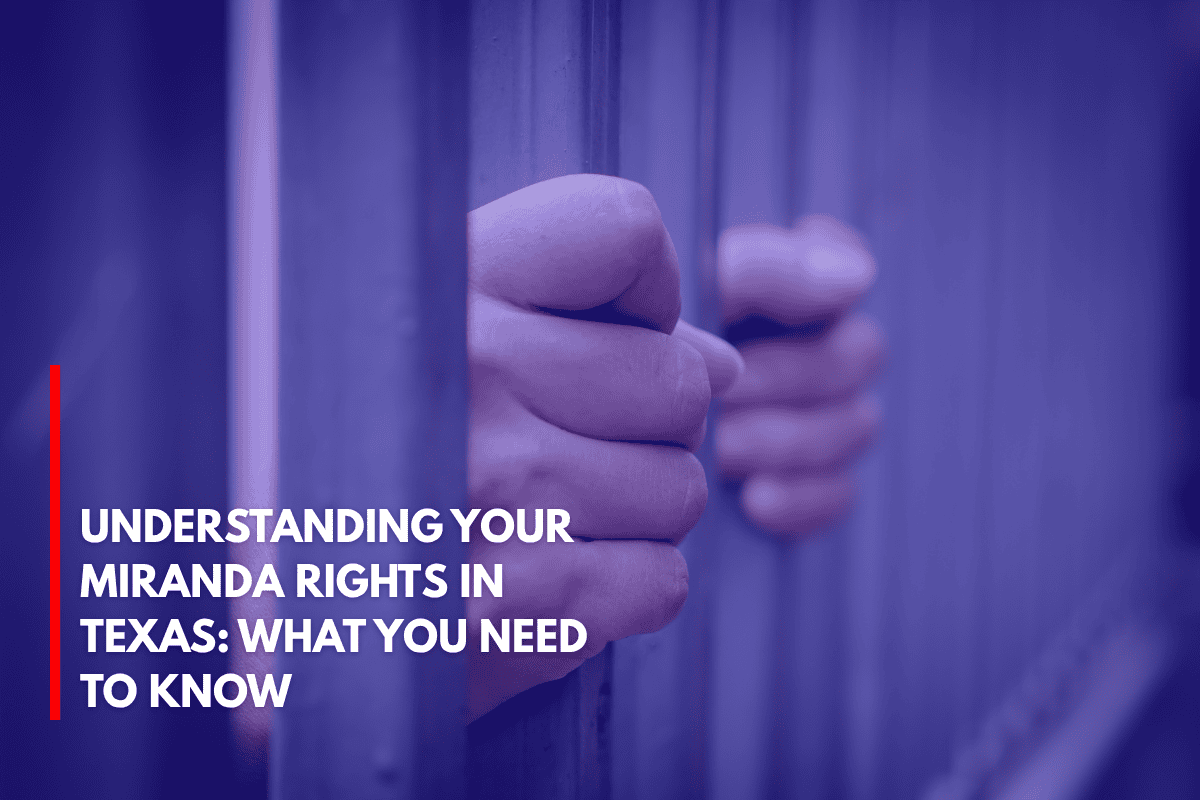Understanding your Miranda rights in Texas is essential for protecting yourself during interactions with law enforcement, especially if you find yourself in custody and subject to interrogation.
What Are Miranda Rights?
Miranda rights are constitutional protections that must be communicated to you before any custodial interrogation. They include:
The right to remain silent: You do not have to answer any questions that could incriminate you.
Anything you say can and will be used against you in court: Any statements you make can be used as evidence.
The right to an attorney: You have the right to consult with a lawyer before and during questioning.
If you cannot afford an attorney, one will be provided for you: The court will appoint a lawyer if you cannot pay for one.
When Do Miranda Rights Apply in Texas?
Miranda warnings are required only in two main circumstances:
Custody: You are not free to leave—such as being handcuffed, placed in a police car, or detained in a police station.
Interrogation: Police are asking questions specifically intended to elicit incriminating information from you.
Miranda rights do not apply to all police encounters. For example, routine traffic stops, basic booking questions, or public safety emergencies do not require a Miranda warning.
Texas-Specific Rules
Texas law adds extra protections:
Recorded Confessions: For confessions to be admissible, Texas law (Article 38.22) requires that your Miranda rights be clearly explained, you must voluntarily waive them, and the interrogation must be electronically recorded in most cases.
Evidence Suppression: If your Miranda rights are violated, any statements or evidence obtained as a result can be excluded from court under Article 38.23 of the Texas Code of Criminal Procedure.
What Happens If Your Miranda Rights Are Violated?
Statements Made May Be Suppressed: If you were not properly Mirandized before a custodial interrogation, your statements may not be used against you in court.
Physical Evidence: Evidence discovered as a direct result of statements made during an improper interrogation may also be excluded, depending on the circumstances.
Not an Automatic Dismissal: A Miranda violation does not automatically dismiss your case, but it can significantly weaken the prosecution’s evidence.
Key Takeaways
Invoke Your Rights: You can say, “I plead the Fifth” or “I want a lawyer,” at any time during an interrogation.
Stay Silent: You are not required to answer questions that could incriminate you.
Request an Attorney: If you ask for a lawyer, questioning must stop until your lawyer is present.
Understand the Exceptions: Miranda rights do not apply to all police interactions—only custodial interrogations.
Being aware of your Miranda rights and when they apply can help protect you from self-incrimination and ensure fair treatment in the Texas criminal justice system.
Sources:
- https://texascriminaldefensegroup.com/what-is-the-miranda-warning-in-texas/
- https://www.cleat.org/miranda-warning/
- https://texapedia.info/miranda-precedent/











Leave a Reply